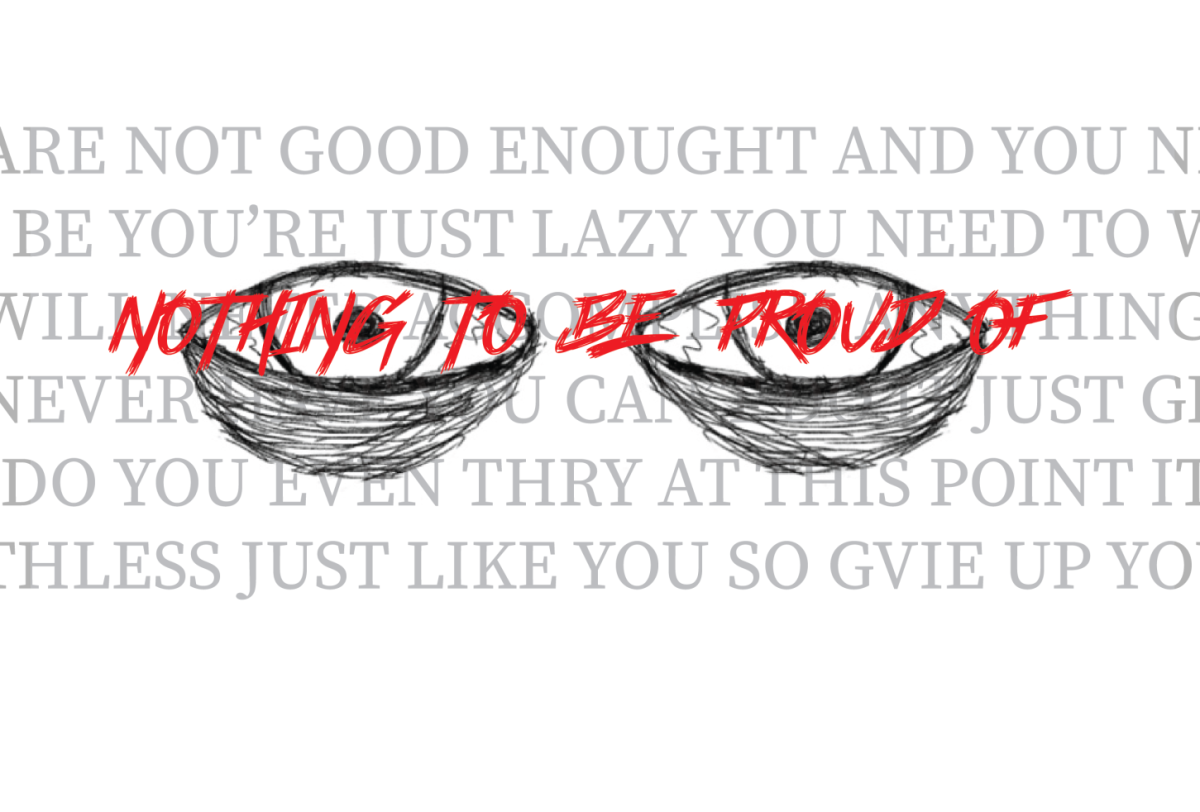There are voices in my family’s heads. Whether it be my mother, chatting to herself while cooking a late-night meal, or my uncle muttering to himself while in deep thought, most of my family has a partner in their mind keeping them company. It can be called many things — an inner voice, an internal monologue or even an imaginary friend — but it’s always there, for better or worse.
Mine is a little different, though. Through all my happiest and most pathetic moments, my inner voice has been a comrade in name only. While my mental friend was a great help on the best days, it was a splitting headache on the worst. A perpetual know-it-all, it has actually been the worst critic of my thoughts, actions and habits, while somehow managing to be bossier and more persistent than my own mother. It never fails to tell me that I’m an idiot by yelling at me for not cleaning my room or forgetting to eat, and pestering me about my homework and after-school activities.
However, having the world’s rudest to-do list in my head was also a great blessing. After all, I can’t forget the hundreds of times I’ve snapped out of scrolling on my phone after my inner voice screamed “WHAT ARE YOU DOING? YOU HAVE A LIFE TO BE LIVING.” It was a friend that pretended to be a bully, always helping me in the end but only through the most obnoxious solutions.
However, as my schoolwork ramped up throughout my sophomore year, so did my stress. The same voice that was once a begrudging benefit and occasional annoyance suddenly seemed like the cause of all my problems. A simple “Hey stupid, do your homework” from my inner voice stopped being a light jab, and I stopped seeing those words as the helpful suggestions they were, but rather as another reminder that I had too much to do. Every attempt to pull me out of a distraction became an encroachment on what little “free time” I felt like I had, even if I was just procrastinating.
I told myself that if I listened to the insulting voice that told me to face responsibilities, I would only end up more stressed than I already was. I told myself that I didn’t need a voice to tell me things I didn’t want to hear. I gradually began to lock myself into a feud with my own doubts. I believed that whatever I was doing, whether that be goofing off or actual work, was perfectly fine and that confidence was the answer. My laziness became “mental health breaks,” and procrastination was just “taking my time” to do the task right.
When the inevitable consequences of my attitude hit, so did the regret of every poor decision I made along the way. No matter what I was doing, my answer had been never to doubt myself, and every time the result had been the same. While it was true that I had detached myself from the anxiety that came with responsibility, I had also lost the fulfillment that came with success.
“Are you proud of yourself?”
It wasn’t an insult or a joke. There was no arrogance or sarcasm — it was just a question that I couldn’t answer. For all my confidence, for all the faking it till I make it, for all the “powering through,” what had come of it? I had nothing to be proud of, nothing I could say that I achieved. My room was a mess because I never cleaned it anymore. I was taking naps as soon as I got home from school because I was constantly staying up late to do work, and my grades were the worst they’d been in years. I sat there, staring at the phone I had been scrolling on for hours, and decided that it was time to start listening.
Change began with little things, through whispers that told me I was making small mistakes. “Are you sure your room is clean?” “It’s 1 p.m., don’t you think you should wake up?” I began to realize that these quiet doubts were the ones I should have been listening to all along. They didn’t fix the damage that had already been done (primarily to my grades), but they were the things that made me feel like a person — someone capable of improving myself — and that genuine feeling of progress gave me the courage to listen to my inner monologue more.
I began to understand that the doubts my inner voice gave me were never my enemy, but rather the slightly annoying help they always have been, guiding my decisions and keeping me humble. I still have to remember to not take anything my inner voice says too seriously, but I’ve understood the consequences of hiding from it. Those doubts are still mine, my inner voice is still just a part of my head, and treating it like a threat is never going to be the answer I really need. I hope I can become friends with the voice someday. I know it’ll take a while, but looking at the rest of my family, I have faith it will happen eventually.










